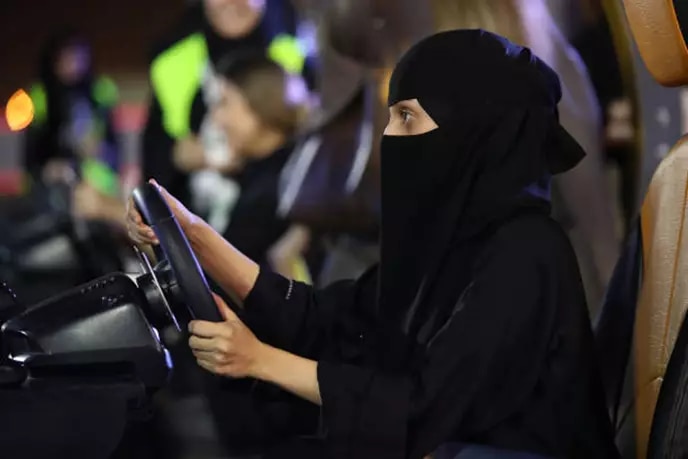
Women's rights in Saudi Arabia have long been a contentious issue both within the kingdom and internationally. Since establishing its sovereignty as a unified nation state in 1932, women's rights have slowly been improving and modernising, although this is not without its shortcomings and international scrutiny over the decades.
Saudi Arabia's economic flourishing overtime as well as King Salman's decision to give his son and heir Mohammad bin Salman increased power over the rule of law in the country has seen greater progression of women's employment and economic rights, although it should be noted that women's rights are still a problem within the country and the women who have benefitted from this the most are in the capital of Riyadh
Empowerment in the workforce
Women’s labor force participation rate has nearly doubled within five years from 17.7 percent in Q1 2016, to 33.2 percent in Q4 2020. Saudi Arabia has also established a range of rights to reduce discrimination within its work force including, equal pay when the value and quality of work is matched, along with training programs to obtain work.
Jobs that were previously limited to Saudi men including hospitality, accounting and graphic design firms have also seen a significant uptake by women, however they are still not allowed to work in particular fields such as construction or garbage collection which highlights the slow but steady shift in gender segregation. Women now also have the right to open their own business but this may be inhibited as they may still require a male business partner or representative.
![]()
Despite these changes, a marginal pay gap still remains. A report by NGO Al Nahda stated that for every 100 riyals earned by a man, a woman earns 51 riyals, which equates to a 49 percent gap.
The gap also interrelates to women’s rights to drive which was only reformed in 2018. Although the ban has been lifted, the significant pay gap creates difficulties for women to obtain cars due to financial reasons.
However, the kingdom has planned to tackle these issues through other methods.
Government programs
Wusool, a public transportation program provided by the Human Resources Development Fund to support working women is also in place. The program which covers 13 regions of the kingdom discounts 80 percent of all trips, to and from the workplace. Women also have the opportunity to participate as drivers by joining the licensed companies under the Wusool program.
According to Saudi Arabia’s 2030 Vision report, the kingdom aims to assist its female university graduates by “investing in their productive capabilities and enable them to strengthen their future and contribute to the development of its society and economy.”
The kingdom has also placed women working in the educational field as a high priority. Saudi Arabia’s Ministry of Education is aiming to enhance the working environment for female teachers in all regions of the kingdom through lectures, seminars and workshops.
Saudi’s Ministry of Education has also made a monumental change by employing a woman as an official spokesperson of its department. The appointment marks a historical moment in the education sector and in the ministerial department of the kingdom as it signifies the first woman to occupy that role.
Servcorp’s movement in Saudi Arabia
Servcorp’s trajectory in Saudi Arabia has always supported and nurtured the importance of women in office. Its operations in the major cities of Riyadh, Jeddah and Khobar are primarily led by women, with 60 percent of its employees in the kingdom representing that gender.
Servcorp has also prioritised female representation in leading roles including floor managers, team leaders, sales manager and virtual office managers. Servcorp’s dedication to women empowerment also carries through in its development opportunities.
Women who are members of management teams are presented with the opportunity to attend a sales training session at the head office in Sydney, Australia, along with partaking in the company’s annual international management meeting.
Servcorp also pioneered the world’s first all-ladies co-working space in Jameel Square in Jeddah and will continue to be a leader in providing more employment opportunities for women.